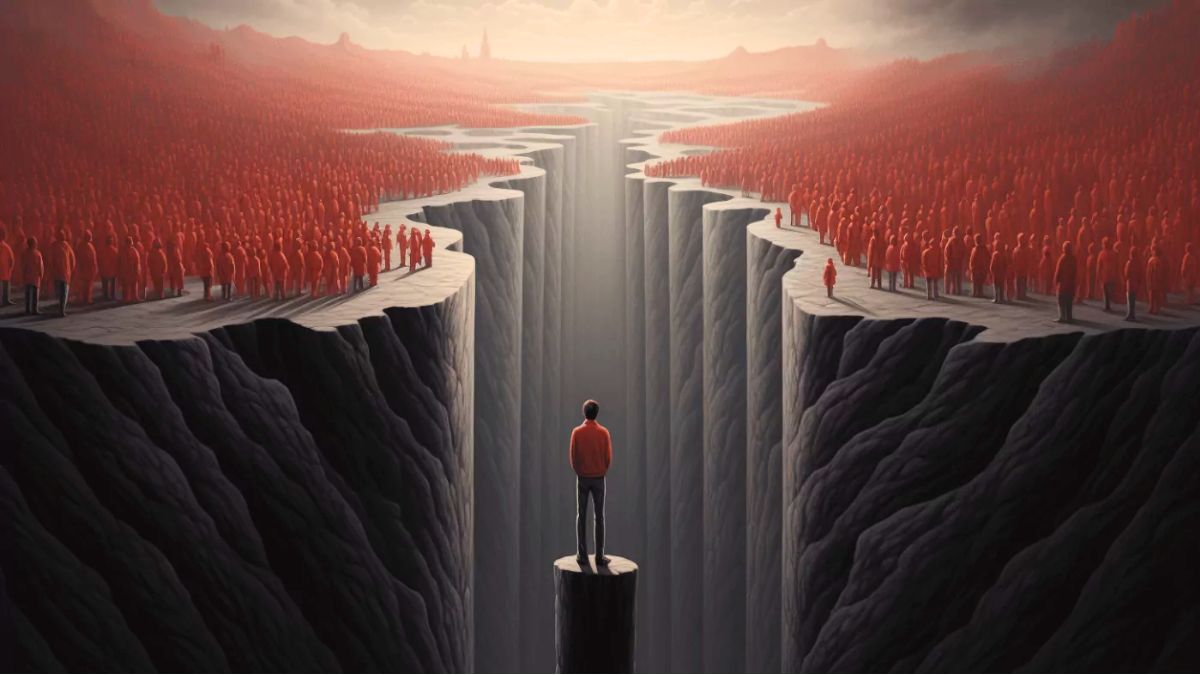Science
Soil’s Secret Defense: Stop Insect Plague
19 February 2026

“This clash between a desiring mind and a disappointing world; a yearning for unity, a fractured reality, and the contradiction binding it all.” These reflections from distinguished French existentialist Albert Camus (1913–1960) epitomize the modern individual’s quest for answers to age-old questions about our origin, purpose, and the essence of existence. How do we navigate a world where the rules often elude our understanding? Does the contemporary individual confront reality with humility and comprehension, or with resentment and unbridled expectations?
“The meaning of life is the most urgent of questions,” posited Albert Camus eight decades ago, a query that has haunted humanity since the dawn of consciousness. People have consistently strived to decipher the enigma surrounding their reality and the role they are meant to play within it. Life presents moments, and specific experiences, prompting each of us to ponder the reason for our presence in the here and now, our destiny, and the intentionality of our pursuits. It appears imperative for homo sapiens to perceive their existence as meaningful; otherwise, life devolves into sterile stagnation, a mindless continuation of everyday existence. “Beginning to think is the start of a silent upheaval,” Camus warns those brave enough to seek clarity and purpose in their aspirations.
In this revision, the text has been honed to ensure an academic yet straightforward tone, keeping sentences concise while clarifying complex philosophical ideas. This style ensures accessibility and maintains the scholarly gravitas appropriate for a well-educated readership, encouraging reflection on the existential dilemmas presented.
The dictionary of the Polish language describes ‘absurd’ (Latin: absurdus, meaning ‘inappropriate’ or ‘unsuitable’) as something inherently senseless or internally contradictory. Yet, in our everyday, often intuitive grasp of this term, we identify a discrepancy—a lack of congruence. An event, situation, or experience registers as absurd when we find it inexplicable and unjustifiable. This highlights that at the heart of absurdity lies a specific kind of truth. We carry expectations of how events should unfold or how certain situations should appear, but reality often unfolds contrarily, leaving us bewildered. We question but receive no answers. We search for solutions using every possible strategy, yet find none. We exert effort and deploy all possible resources, yet fail to achieve our desired ends. This conundrum embodies the fundamental experience of the world’s absurdity that Camus described as “the basic concept and the first truth.”
Nonetheless, the crux of our existential issue does not reside in experiencing absurdity itself. The real challenge is accepting this phenomenon. Humans, as rational beings, are somewhat condemned to an unending quest to understand life’s occurrences. We seek meaning and satisfying solutions, believing in our capability and the possibility of comprehension. Camus reflects on our predicament: “Intelligence also suggests, in its way, that the world is absurd. Its opposite, blind reason, insists futilely that everything is clear.” Our struggle stems from an inability to accept the coexistence of truth and its denial in the world. We cannot come to terms with the fact that we are, and always will be, alien to the rules orchestrating our destiny and the world’s dynamics. “The world per se is not reasonable—that is all that can be stated. But absurd is the confrontation with the irrational and the wild urge for clarity resonating within the human core,” the philosopher summarizes. What are the implications of this human attitude?
This refinement ensures the paragraphs are articulated in a manner befitting academic literature, employing clear, precise, yet accessible language. The structure allows for easy following, maintaining a logical flow that enhances comprehension of these philosophical musings for native readers, all the while keeping the sentences succinct and the content intellectually stimulating.
We recommend: Distorted Reality: Is There an Objective Truth?
This reality perpetually instills in humans a profound sense of division and confusion. Numerous existentialists have addressed this issue, characterizing humanity as entities torn between angel and beast (St. Augustine), the finite and the infinite (B. Pascal, S. Kierkegaard, L. Shestov), and practical and theoretical reason (I. Kant). These insights into the human predicament unveil an intrinsic sense of dissatisfaction, torment, and often, skepticism.
Assorted endeavors, both past and ongoing, strive to reconcile this quest for truth with experiences of helplessness, nihilism, and cognitive constraints. The Enlightenment era dictated a trajectory for future intellectual epochs: science possesses boundless potential, constrained only by time and approach. The human intellect has ceaselessly directed vast resources towards logic, regarded as the infallible mechanism for discerning truth and decrypting the cosmos’s enigmas. In the 21st century, there lies an immense trust in artificial intelligence to ultimately resolve the perennial queries that have haunted humanity. However, existentialists, arguably with an air of defiance, pose fundamentally metaphysical questions: How can one navigate a reality where possibly even logic is but a convenient deception? This misapprehension, potentially the grandest of human delusions, stems from the belief in attainable absolute truth and the denial of ever-present, inexplicable mysteries.
In opposition to contemporary scientific trends, Camus asserts, “I am aware, too, of the impossible reconciliation between the craving for the absolute, for unity, and the impossibility of reducing this world to a rational and reasonable principle.” With this assertion, he highlights what he perceives as the foundational absurdity of existence, a truth persistently elusive to the modern individual.

Accepting what lies beyond our comprehension proves difficult. Our unfettered belief in our abilities has historically led to a sense of entitlement and arrogance towards the universe. It is pertinent here to revisit the thoughts of Blaise Pascal (1623–1662), a notable philosopher who, amid the Enlightenment, advocated for a balanced view of human potential. Pascal emphasized that “thought underlies human greatness,” positioning intellect as the cornerstone of human dignity. Humans stand unique in the natural world, endowed with reason and the capacity to use logic deliberately to expand knowledge.
However, this same philosopher and mathematician also stressed moderation and humility in the face of the universe’s enigmas. Humans have vast capabilities, but they are not limitless. Recognizing these boundaries is crucial; otherwise, perpetual dissatisfaction follows. In the 21st century, it remains vital to value the intellect, science, and knowledge that drive societal progress. Yet, Pascal’s words caution us: “Man is but a reed, the most feeble thing in nature, but he is a thinking reed. The universe need not arm itself to crush him: a vapor, a drop of water suffices to kill him.”
Understanding our finite position and maintaining realistic expectations of our capabilities could lessen the feeling of life’s absurdity, a notion Camus explored. This mindset helps in acknowledging our limitations, appreciating the intrinsic mystery beyond our reach, while still celebrating the profound nature of humans as “thinking reeds.”